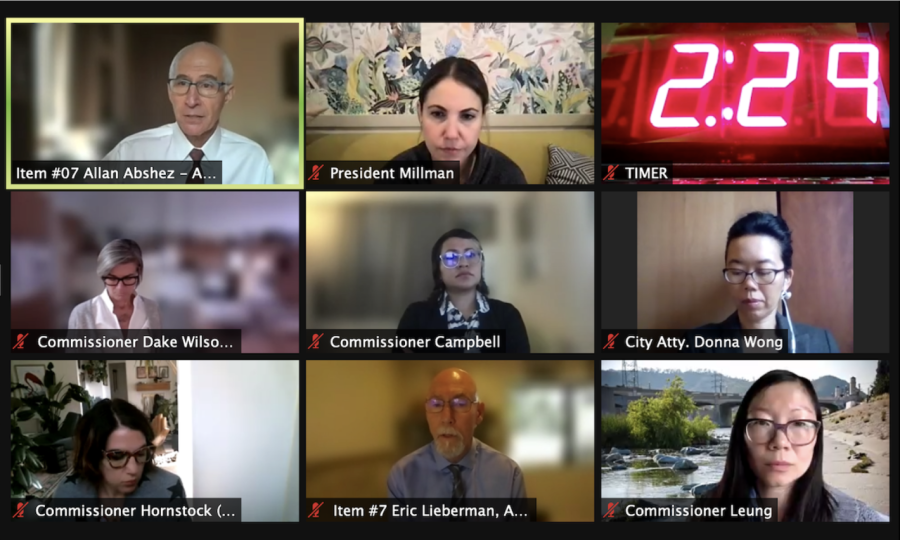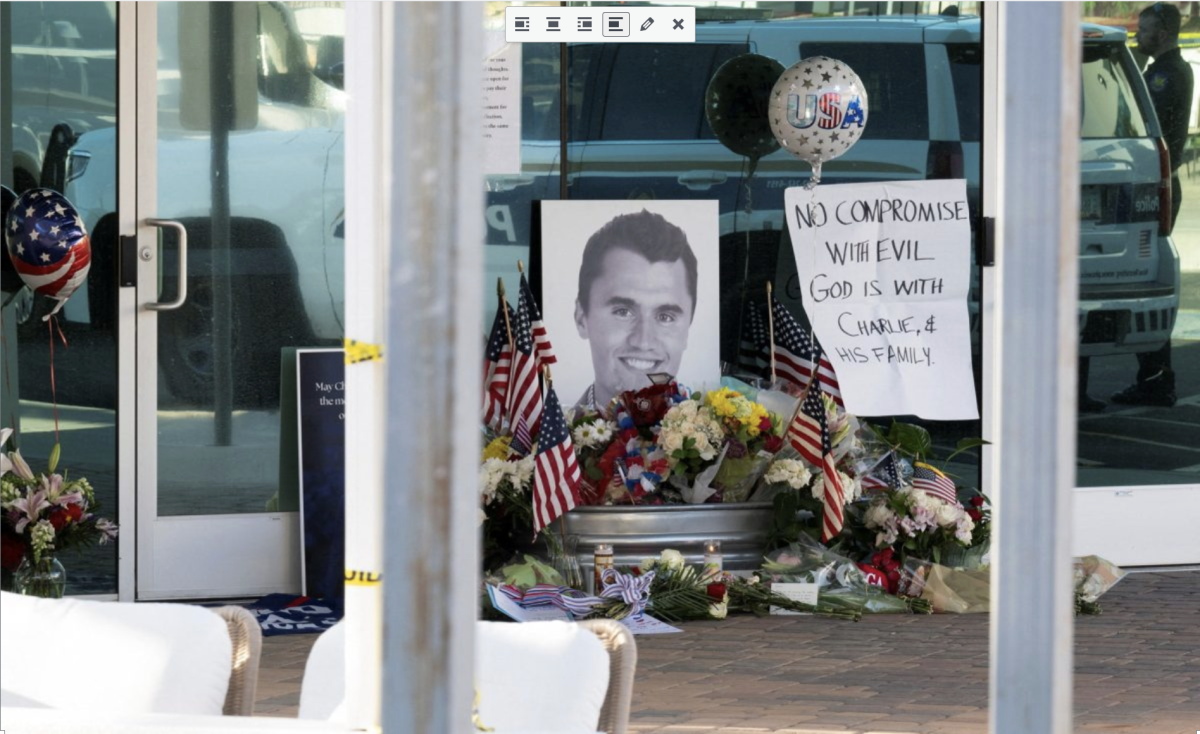The Los Angeles City Planning Commission voted last Thursday not to approve the construction of a 131-room hotel next to the Walgreens parking lot on Robertson Boulevard just south of Pico.
After a one-hour-and-15-minute public hearing, the commission voted 7 – 0 not to approve the six-story structure, which would have been called the Soro Hotel. Three members of the 10-person commission were not in attendance.
“In some cases I might approve a hotel, even though I know we have a housing crisis, and I’m a giant advocate for housing,” said Commissioner Jenna Hornstock at the meeting, which was held over Zoom.
“I can agree that hotels are a good [mix of] uses in different communities. But I didn’t see this as a general welfare or public necessity.”
The hotel’s developer may appeal the ruling to the Los Angeles City Council.
Mr. Dan Harkham, who owns the property and whose company, Sinanian Development Inc., applied for a zoning change to make the hotel possible, said the company has not decided whether to appeal.
He said they were disappointed but not angry.
“We understand the city’s perspective, as there is a housing crisis that we’re all aware of,” Mr. Harkham said in a phone interview after the hearing. “We get it completely.”
But he said the commissioners had overlooked issues relevant to the neighborhood’s Jewish community, including Shabbat conveniences which were mentioned but not promised in the application. The property is located at 1434-1456 South Robertson Blvd., less than one block south of Pico.
The spokesman for Sinanian Development, Mr. Allan Abshez, said at the hearing that hotels in the area do not meet the needs of observant Jews, such as later checkout times on Shabbat and holidays.
Asked by Commissioner Dana M. Perlman about what amenities would be provided for people who keep Shabbat that other hotels don’t offer, Mr. Abshez said the Soro Hotel would provide the later checkout times along with non-electric keys and kosher banquet facilities.
The group did not promise to include them in its application, however, and Mr. Harkham said the hotel might be run by a franchise. Little time was devoted to the Jewish-related proposals at the meeting.
Mr. Harkham also said they thought the Commission overlooked the Jewish community east of Robertson in the access to the hotels, as most of the nearby hotels mentioned are in the vicinity of Beverly Drive, more than a mile to the west.
“It was hard to hear everything that they had said because it made us seem like we were coming from a place of malice, when we’re not and we have been in this community for our whole lives,” said Mr. Harkham, who graduated from Shalhevet in 2000.
For the Planning Commission, housing seemed to be the priority, and commissioners were not willing to grant a zoning exception Harkham had sought to make the hotel taller than other area buildings.
Several rent-stabilized apartments are located in the buildings which the hotel’s construction would demolish, and their tenants would be paid to leave but not given new housing. Small businesses including Le Petit Jardin cafe and florist would have to close.
The hearing began at around 9:30 a.m. with Mr. Abshez representing Mr. Harkham’s company, Sinanian Development Inc. Public comments for and against the project were then offered, and then commissioners discussed their views.
Twenty-nine people called in to profess their opposition to the project, while four called to support it.
“I heard a caller mention … opportunity that could come with this project to beautify the area,” said Commissioner Yvette Lopez-Ledesma.
“I’m not sure how that beautification is happening, But also it would be happening at the expense of existing residents and businesses. And our small business community shouldn’t have to pay the price along with existing residents and those units, those R-2 units [two-family residences].”
Most opponents of the project focused on the loss of rent-stabilized housing from the market during a housing crisis. One caller called it a shonda — the Yiddish word for a disgrace or scandal.
Another caller in opposition, Miriam Cantor, said approving the hotel was a matter of justice.
“Justice, justice, shall you do,” Ms. Cantor said, quoting Chapter 16, verse 20 of Devarim (Deuteronomy). ”Justice, justice shall you pursue. Let’s look at the real justice of this situation and see beyond the dollar signs.”
Morythin Roc, a tenant of one of the buildings that would have been torn down, said he was pressured to move out. He said he was given $45,000 to leave, but only a month to think about it.
Daniel Fishman, calling in support of the project, said the hotel would help people with large families by giving them a place to stay during family events within walking distance.
However, under a new density bonus law in Los Angeles County, the developer could build up, even going higher than the current zoning permits, if they were to build additional housing, keep some under rent stabilized prices, and give tenants the right to return.
In his interview, Mr. Harkham seemed to hold out hope for building something on the site.
“Beautifying the neighborhood is high on the agenda [for both parties],” he said, “and getting it to that point, we just see differently from a economic standpoint.”
Originally published in The Boiling Point on November 24, 2021.
This story is one of two stories by the author which won First Place in the Ongoing Reporting category in the 2022 Jewish Scholastic Journalism Awards contest.
JSPA Judges’ Comments: Excellent two-part coverage of a topic of great interest to the immediate community of Shalhevet. Thorough package that includes voices of all the actors involved.












